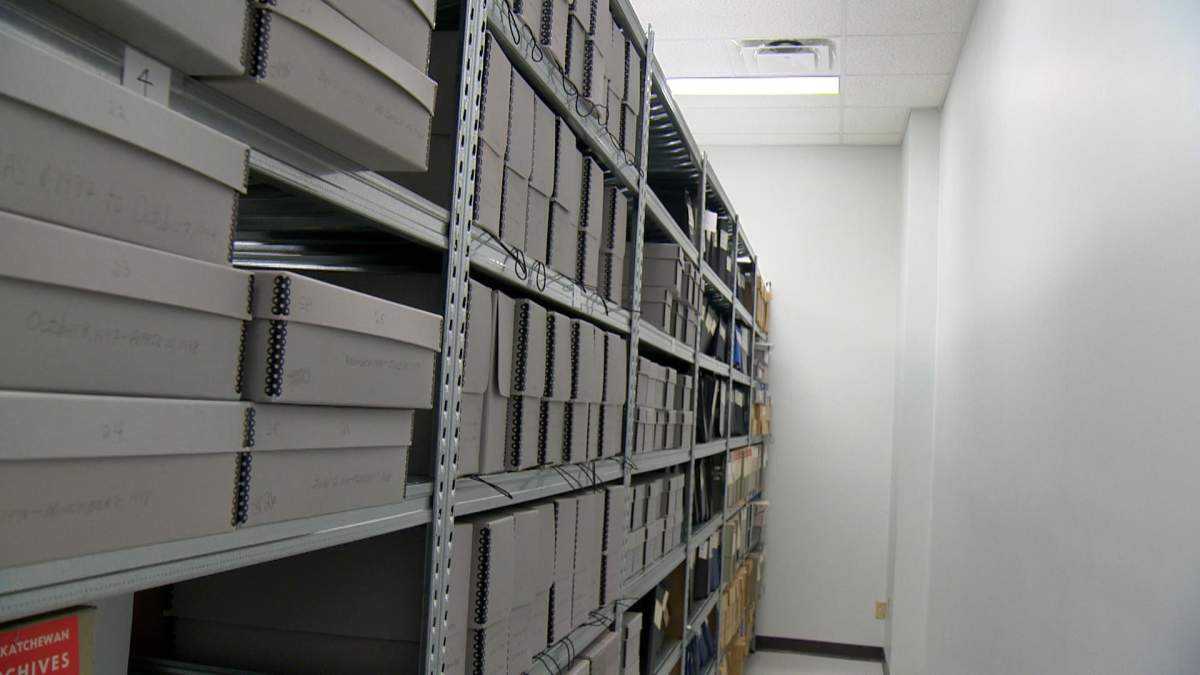Saskatoon’s city archives has the daunting task of moving thousands upon thousands of photos, maps and records as it relocates to its new permanent home across the street from city hall.

The archives have been at the Cardinal Crescent location near the airport since 2010 but will now be housed at the old post office building at 202 Fourth Ave. N.
“We’re excited about moving city archives into this new space. It’s larger, better organized and more secure than Cardinal Crescent,” said Jeff O’Brien, city archivist.

Get breaking National news
“This move is timely; we’ve simply outgrown our current space. We have a huge archival collection — we will have about 3,500 boxes of records to move once we’re packed up.”
The city gave some stats about how many records will be moving:
- 450,000 photographs
- 4,000 feet of shelves
- 3,000 linear feet of records
- thousands of maps, plans and blueprints
- hundreds of miscellaneous materials
- 135 map cabinet drawers, along with bookcases and filing cabinets
- dozens of oversized financial ledgers and tax rolls
O’Brien said the new location will allow the archives to better share resources with the local history room.
“For city staff, the new location will also make archives more accessible as we’ll be right across the street from city hall. Our new location will support city archives in being a more effective resource for all civic departments.”
Preparations for the move began in January 2024 and construction of the new space is expected to be complete at the start of May.
The archives will be closing up shop starting on Monday to start working on the careful pack up, adding that public inquiries will be closed until the re-opening in June.








Comments
Want to discuss? Please read our Commenting Policy first.